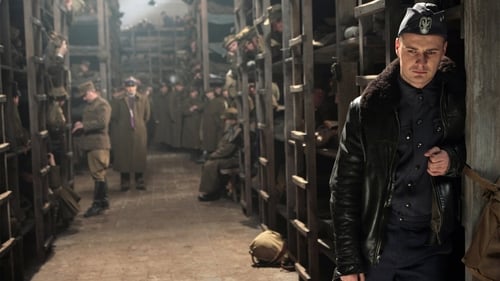
Sound
The sisters struggle with their own bodies. One, driven by ambitions, seeks the limits of its possibilities, for the other, the body is a prison. One believes that ballet will save her from memories. The second observes the world from the balcony with such attention that she sees and hears more.

Sound
Marta is a romantic and a loser in school. She shares a room with her sister Kasia and grandma, who tells her granddaughters insurgency stories instead of fairy tales. In the room behind the wall, the parents - Tadek and Elżbieta - live their married life. He is an intelligent constantly humiliated by the state, he also makes his own moonshine after work and silently envies his prosperous brother in law. She is the leader of the "Solidarity" union at work, with the need for freedom and a dream to get out of Poland. The real adventure for the family starts when they manage to get their dream orange Fiat 126p. Ela and Tadek discover their appetite for trading and trips abroad, and the growing Marta will fall in love for the first time.

Sound
Piotr (Paweł Królikowski) jest psychiatrą. Siedzi na nocnym dyżurze, gdy na jego oddział przywożą chłopaka. To Kamil (Lesław Żurek), syn którego nie widział całe lata. Chłopak znika ze szpitala równie szybko, jak się pojawił. Jednak Piotr postanawia nawiązać z nim kontakt. Zaprasza go do siebie i poznaje ze swoją piękną, młodą narzeczoną (Anna Geislerová). Po wizycie Kamila kobieta uświadamia sobie, że Piotr jest dla niej zagadką i naprawdę nic o nim nie wie. A Piotr rzeczywiście skrywa mroczną tajemnicę…

Sound
No mês de agosto de 1968 uma unidade do exército da República Popular da Polônia é enviada em uma "missão de ajuda fraterna" para a Tchecoslováquia. A unidade avança lentamente e seu tanque "Joaninha" desaparece logo após cruzar a fronteira. A suboficial Grążlowa (Eva Halubova), acompanhada por seu marido ciumento, pega uma moto e conduz uma perseguição tentando evitar ser punida pela bagunça de sua unidade. Ao mesmo tempo, ela quer pegar e humilhar seu amante, Romek (Przemyslaw Bluszcz), que havia a humilhado pouco antes da invasão.

Sound
O polonês Andrzej Wajda descreve o famoso e triste massacre de Katyn. Meses depois da invasão nazista na Polônia, em 1939, aproximadamente 22 mil prisioneiros de guerra poloneses são mortos pela polícia secreta soviética nas florestas da cidade de Katyn.



